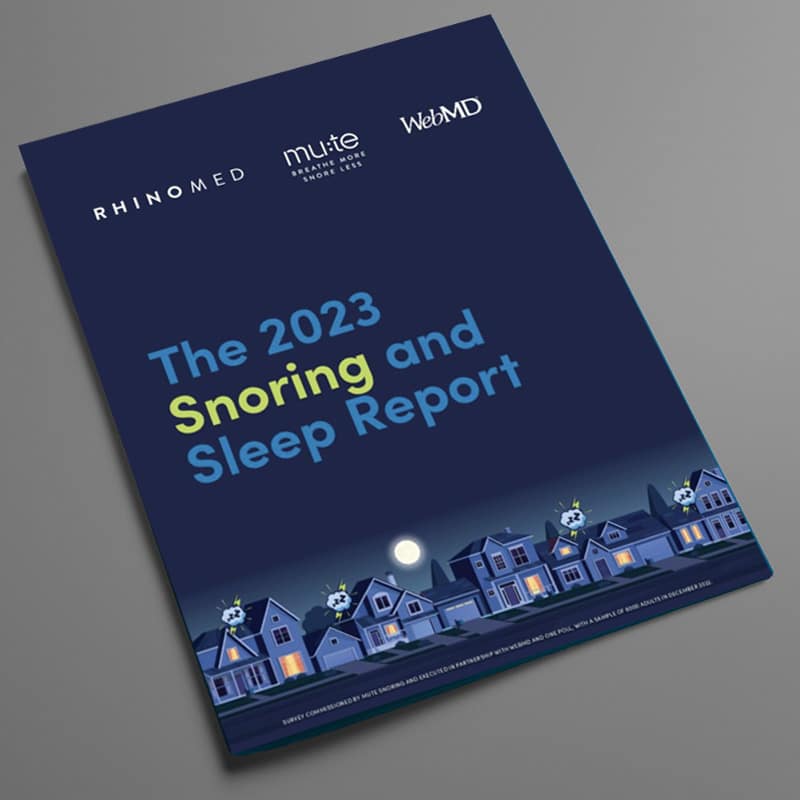Is Snoring The Elephant in Your Bedroom?
Ask most people what is the key to a healthy, loving relationship, and they will probably say communication. And it’s hard to disagree, but there is perhaps one thing that is more important….sleep.
Lack of sleep makes us grumpy and difficult. The effects range from moodiness to full-blown temper. Some people do learn to manage – instead of flying off the handle, their coping mechanism can be emotional shutdown, low energy or procrastination. What is certain is that none of these responses encourage strong, healthy relationships.
Lack of sleep not only affects the quality of our relationships with our loved ones but with everyone we interact with. It’s a simple equation: poor sleep equals poorer relationships at home and work.
This isn’t a fringe issue: the National Sleep Foundation says over 60% of adults feel they don’t get enough sleep.
So how do you get more sleep? And how do you improve the quality of your sleep? There’s no silver bullet; you and your partner need to develop good sleep habits. Collectively, these habits are known as good ‘sleep hygiene’: they are quite simple, they just require consistency.
• Establish a routine – going to bed and getting up at the same time each day is the best way to set your internal clock. Our bodies evolved before the invention of the electric light bulb and we are programmed to follow a regular routine in line with the sun. Changing our schedule simply confuses our body clocks.
• Wind down before bed. Our brains need about an hour to move from a busy active state to the relaxed state that leads to falling asleep easily and reaching much needed deep sleep phase, essential to repair and recovery. Skipping this stage really sets you up for failure.
• Ban screens during your wind down phase! Back-lit screens emit short wave-length, blue light designed to raise your alertness levels. This is good during the day but suppresses melatonin production and prevents you relaxing and becoming sleepy. Dimmable, E-readers with front-lit screens don’t seem to have the same effect.
• Limit disturbances during the night. This means light, noise, temperature and ventilation. It also means other people or animals waking you up!
You need to ban pets from your bedroom and try to settle children into their own beds. This can take time as there’s no denying some children, and some animals, respond to routine faster than others!
But if the elephant in your bedroom is a snoring partner, you are in a special sort of relationship hell. Not only are you not sleeping, but you find it hard not to blame your snorer for your exhaustion. This certainly isn’t a good recipe for strong open communications. After all, your partner isn’t choosing to snore. He (or she) simply can’t help it. He’s frustrated by the problem, upset that you don’t understand and he’s also probably tired as snorers tend to have poorer sleep quality as well as the silent sufferers!
What next? By banishing your snorer to the doghouse, you probably swap your immediate sleep deprivation for a more intractable relationship problem. If you want to get your snorer out of the doghouse and get some sleep, you need to find a way to reduce your partner’s snoring.
Mute, an innovative nasal technology, increases the volume of air travelling through the nose during sleep, preventing congestion and encouraging nasal breathing – factors critical to a reduction in snoring and a better quality of sleep.
User trials show:
• 75% of men snored less often
• 78% of men could breathe better at night
• 73% of partners reported a reduction in the severity of snoring
• 57% of snorers reported better quality sleep
So, rather than trying to get two grumpy, sleep deprived people to communicate better, why not take a first step by tackling your sleep? If you’re both rested, relaxed and sleeping in the same bed, that’s a good start.



